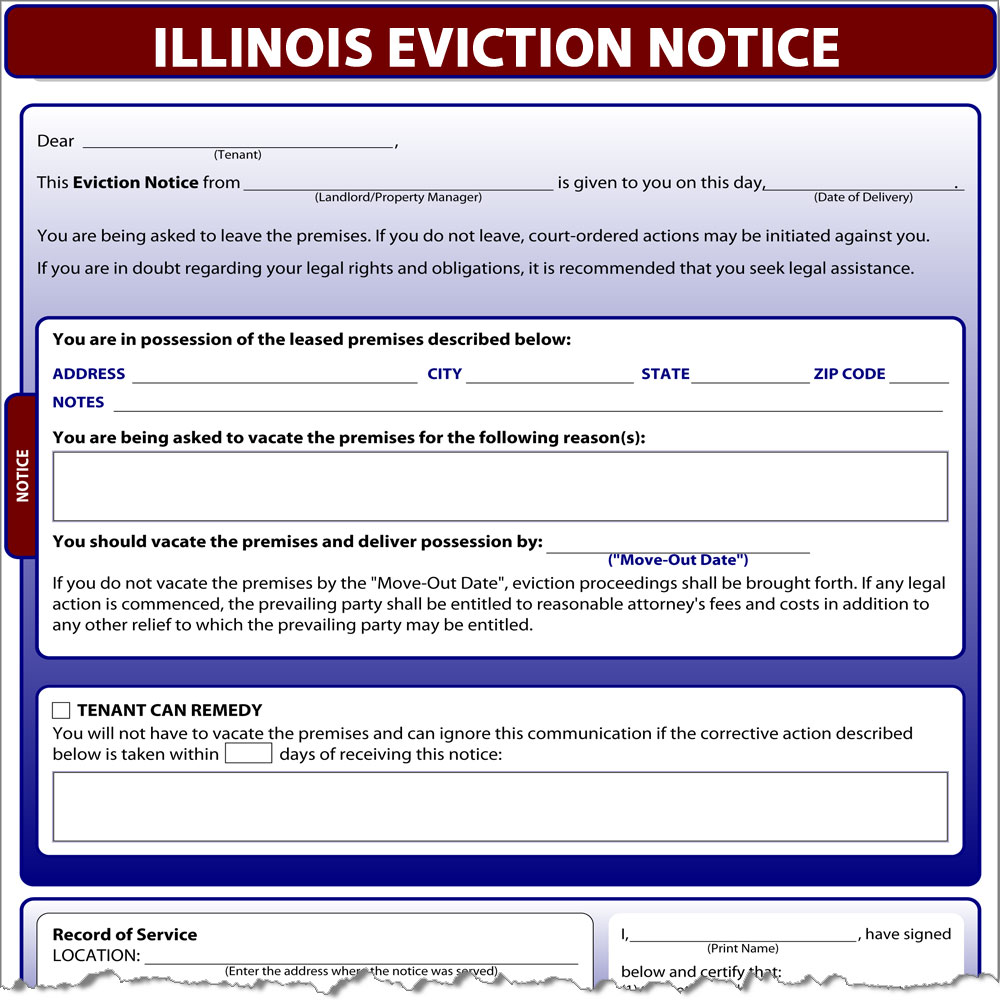Understanding the Timeline: When Does the Eviction Process Begin?
Understanding the Timeline: When Does the Eviction Process Begin?
Blog Article
The very thought of being evicted from your property could be terrifying. It's a predicament many people trust never to end up in. But, if you're experiencing hard instances, eviction may possibly turn into a reality. Understanding the timeline of an eviction process can help convenience some of the strain and permit greater planning. In this short article, we'll discover the basic principles of eviction law and answer the problem, illinois eviction notice?

First thing to know is that the method of eviction an average of starts with the tenant declining to pay for lease on time. With regards to the certain lease deal and state laws, there can be a grace time that enables for cost without penalty. Nevertheless, once that window closes, the landlord can take appropriate action. That is frequently referred to as a Spend or Cease notice. Primarily, the landlord is telling the tenant to both spend the rent owed or vacate the property. This notice frequently gives the tenant a particular timeframe, which varies by state, to comply.
If the tenant doesn't spend or keep within the given time, the landlord will then file an official complaint with the court. This file notifies the tenant of the eviction lawsuit and sets a date for a test or hearing. The exact period of time involving the criticism filing and the reading differs by state, but it's generally several weeks. During this time, the tenant really has the opportunity to cover the rent owed and prevent eviction.
Assuming the tenant does not spend or arrived at an deal with the landlord, the test or hearing requires place. Equally events are able presenting evidence and testimony. If the judge principles in favor of the landlord, one last judgment of possession is going to be issued. This means the tenant includes a set timeframe to vacate the home or be artificially removed by legislation enforcement.
The amount of time between the ultimate judgment and the particular eviction differs by state and circumstance. As an example, if the tenant speaks the eviction, the process will soon be postponed significantly. But, assuming you can find no more legal measures taken, the eviction process usually takes position the moment 24-72 hours following the ultimate judgment.
It's essential to notice that there are legal procedures that must definitely be followed throughout the eviction process. Landlords can't simply modify the locks or artificially remove tenants on their own. Doing so may result in appropriate difficulty and further complications. It's encouraged for both parties to find legal counsel to ensure proper techniques are now being followed.

Realization:
Facing eviction can feel overwhelming, but knowledge the eviction method may lessen some of the stress. Knowing once the eviction method begins and what to expect as you go along is an important first faltering step in navigating the situation. While each state has a unique laws regarding eviction, you can find parallels that may be expected. By working with the landlord and seeking legitimate counsel, tenants can ensure that they're handled pretty and have the best possible outcome.
Report this page